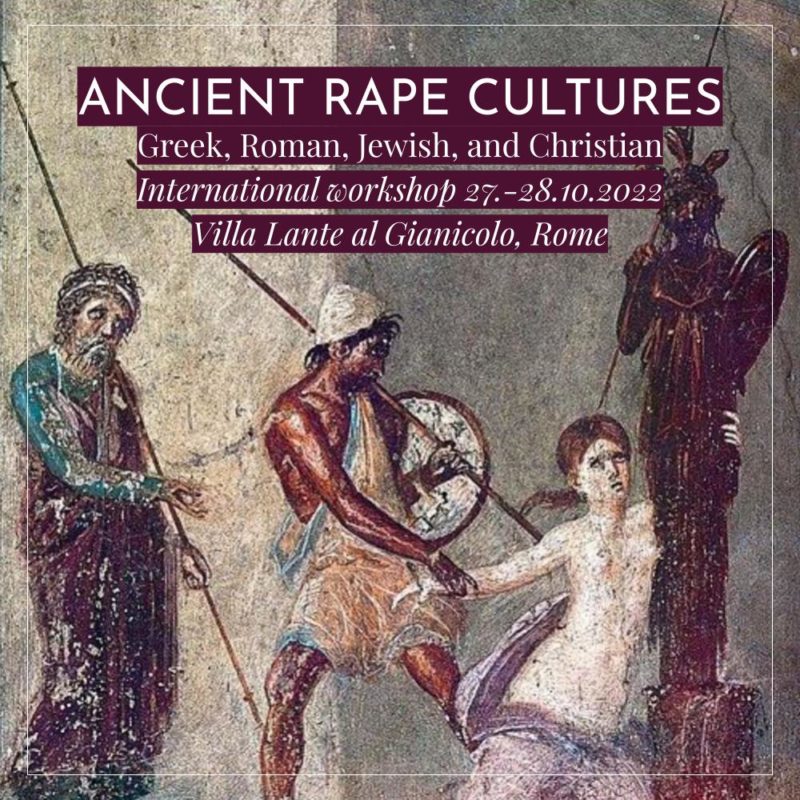International conference
27-28 October 2022, Villa Lante a Gianicolo, Rome
It is possible to follow the key note lectures online.
Thursday 27 October at 9:20 am (GMT +2)
Christopher Greenough (Edge Hill University): The Bible and Sexual Violence Agains Men
Please, register here to participate online
Friday 28 October at 3:50 pm (GMT +2)
Victoria Leonard (Coventery University): Gendering Violence in the Ancient Past
Please, register here to participate online
The concept of ‘rape culture’ refers to a cultural environment in which sexual violence is not only common but also normalized and therefore largely invisible and unreported. While it might be anachronistic and provocative to label the ancient Mediterranean world in general as a ‘rape culture’, we believe the concept can be useful in exploring the literary narratives and visual representations of gender-based violence in the surviving ancient sources. As various studies have demonstrated, sexual violence is one of the most predominant themes in ancient narrative traditions. Not only is the phenomenon common, but in both mythical and historical storylines it is often naturalized as an essential part of the world, and as a defining element of its hierarchies and power structures. Furthermore, in ancient storytelling, sexual violence wields great narrative significance: it is often an act that sets the events in motion and motivates the actions of the heroes and the protagonists.
Ancient narratives have had a profound influence on the ways in which sexual and gender-based violence have been represented in the later Western culture. The “Ancient Rape Cultures: Greek, Roman, Jewish, Christian” conference aims to understand this ambivalent legacy by fomenting interdisciplinary discussion of the similarities, differences and connections between the different ancient narrative traditions: Greek, Roman, Jewish, and early Christian. The conference will examine how gender-based violence has been narrated and represented in different cultural contexts in antiquity, and how the theme has been utilized to construct cultural, ethnic, and religious identities. The conference is addressed to scholars from all disciplines across Classics, ancient history, art history, biblical studies and studies of religion.


